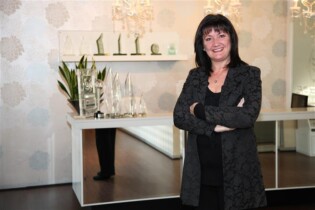Its that complex, and that simple:
Gone are the days when out-of-town hotel conferences ended at 5pm for socialising. Thanks to technology, many conference delegates and business travellers work days start in their hotel room when the conferencing day ends. So, are hotels catering for the fast paced MICE industry? Arthur Gillis CEO of the Protea Hospitality Group explains.
Conferencing with an overnight component has always meant to be an immersive experience taking your clients or staff away from the hub-bub to think tank the next great idea or sell the next great product. The operative phrase there is taking away, but in the modern world thats no longer possible, says Gillis. Technology has fundamentally changed the way business operates. Its also the most significant thing changing what the MICE market expects from hotels because of 24/7 connectivity thats turned the work day into an around-the-clock venture. In years gone by, people would attend conference sessions during the day, then invariably take some down time to mix with colleagues at the hotel bar or restaurant. But nowadays conference delegates and other business travellers carry so much technology with them that their work day generally starts when their conferencing day ends. This means hotels have to constantly innovate their product offering rooms in particular in order to meet and exceed the expectations of a far more sophisticated traveller, Gillis adds. Earlier this year Hotels.com released the results of an international survey of both guests and staff expectations and perceptions of hotel amenities. According to the survey, the single most important thing to the majority of guests is free, fast Wi-Fi not docking stations, surround sound, 200 TV channels or gaming consoles in rooms. In fact, nearly 40% of respondents said they make booking decisions based on free Wif-fi. Gillis explains: Hoteliers need to focus on providing seamless, fast connectivity throughout the property and relook their public areas as they become spaces where conference-goers and executive travellers mix far more business into leisure time. The Hotels.com survey was done in highly developed countries so, whats the situation in South Africa? Are South African MICE organisers and delegates still more interested in a trendy bar than in connectivity? Absolutely not, says Gillis. Theres been a greater shift in guest expectations in the past five years than at any other time in the past three decades. Hotels are being forced to reinvent themselves and the experiences they present to their clientele. The change in guest behavior, brought about by 24-hour connectivity, is so profound that its completely rewritten the rules of service delivery. Many of the Protea Hospitality Group hotels in Africa are based in secondary economic nodes and while one would expect change to be slower in smaller towns than in cities, thats no longer true. Ninety five per cent of their business is corporate and a fair amount of that, conferencing. The bulk of the Groups feedback across the board indicates an entirely new set of primary desires which have changed the purpose of hotel rooms from spaces of relaxation and rest to work spaces that need the right amenities, explains Gillis. Whats important to business travellers are things like conveniently located plug points, a sufficient number of plugs to charge their various devices, appropriate lighting, laptop safes, comfortable work station chairs, pens that dont dry out within five minutes, and free bottled water. Of course the fundamentals such as comfortable beds, fresh rooms, spotless bathrooms, crisp linen, good pillows, climate control, enough hangers, and brilliant breakfasts will always be important. However, these things are no longer at the top of most guests hierarchy of needs, because theyre expected when booking with a reputable brand. Guests niggle factors have also changed, says Gillis. If a conference organiser has a choice of two hotels, its likely the one that provides efficient service and free Wi-fi, and doesnt charge exorbitant prices for the pleasure of having a glass of water, is the one that gets chosen. Gillis explains: The complaints about the price of water is one of the reasons why we decided at the beginning of the year to introduce an on-site purified water bottling system using glass bottles that are sterilised and refilled, rather than charging for mineral water in plastic bottles that end up in landfills. In the hotels where the system is already in place, still bottled water is available free in conference venues, restaurants and rooms. We often hear from guests that something as small as having to pay slightly more for bottled water is irritating enough to prevent them returning. Hotel room interior dcor trends have also changed to work around the modern corporate traveller. The contemporary school of thought is that less is more. According to Gillis, guests prefer organised spaces with good quality essential pieces, rather than cluttered fussy rooms where everything important is disguised by elaborate dcor. What does this all mean for hotel room design in the future? Well, says Gillis, were going to have to keep up-to-date with technology changes if we want to retain and grow our core market. If we dont create spaces that integrate seamlessly with what corporate travellers deem to be essential in their daily lives, theyre not going to walk through our doors.
Conferencing with an overnight component has always meant to be an immersive experience taking your clients or staff away from the hub-bub to think tank the next great idea or sell the next great product. The operative phrase there is taking away, but in the modern world thats no longer possible, says Gillis.
Technology has fundamentally changed the way business operates. Its also the most significant thing changing what the MICE market expects from hotels because of 24/7 connectivity thats turned the work day into an around-the-clock venture.
In years gone by, people would attend conference sessions during the day, then invariably take some down time to mix with colleagues at the hotel bar or restaurant. But nowadays conference delegates and other business travellers carry so much technology with them that their work day generally starts when their conferencing day ends. This means hotels have to constantly innovate their product offering rooms in particular in order to meet and exceed the expectations of a far more sophisticated traveller, Gillis adds.
Earlier this year Hotels.com released the results of an international survey of both guests and staff expectations and perceptions of hotel amenities. According to the survey, the single most important thing to the majority of guests is free, fast Wi-Fi not docking stations, surround sound, 200 TV channels or gaming consoles in rooms. In fact, nearly 40% of respondents said they make booking decisions based on free Wif-fi.
Gillis explains: Hoteliers need to focus on providing seamless, fast connectivity throughout the property and relook their public areas as they become spaces where conference-goers and executive travellers mix far more business into leisure time.
The Hotels.com survey was done in highly developed countries so, whats the situation in South Africa? Are South African MICE organisers and delegates still more interested in a trendy bar than in connectivity? Absolutely not, says Gillis. Theres been a greater shift in guest expectations in the past five years than at any other time in the past three decades.
Hotels are being forced to reinvent themselves and the experiences they present to their clientele. The change in guest behavior, brought about by 24-hour connectivity, is so profound that its completely rewritten the rules of service delivery.
Many of the Protea Hospitality Group hotels in Africa are based in secondary economic nodes and while one would expect change to be slower in smaller towns than in cities, thats no longer true. Ninety five per cent of their business is corporate and a fair amount of that, conferencing.
The bulk of the Groups feedback across the board indicates an entirely new set of primary desires which have changed the purpose of hotel rooms from spaces of relaxation and rest to work spaces that need the right amenities, explains Gillis.
Whats important to business travellers are things like conveniently located plug points, a sufficient number of plugs to charge their various devices, appropriate lighting, laptop safes, comfortable work station chairs, pens that dont dry out within five minutes, and free bottled water.
Of course the fundamentals such as comfortable beds, fresh rooms, spotless bathrooms, crisp linen, good pillows, climate control, enough hangers, and brilliant breakfasts will always be important. However, these things are no longer at the top of most guests hierarchy of needs, because theyre expected when booking with a reputable brand.
Guests niggle factors have also changed, says Gillis. If a conference organiser has a choice of two hotels, its likely the one that provides efficient service and free Wi-fi, and doesnt charge exorbitant prices for the pleasure of having a glass of water, is the one that gets chosen.
Gillis explains: The complaints about the price of water is one of the reasons why we decided at the beginning of the year to introduce an on-site purified water bottling system using glass bottles that are sterilised and refilled, rather than charging for mineral water in plastic bottles that end up in landfills. In the hotels where the system is already in place, still bottled water is available free in conference venues, restaurants and rooms.
We often hear from guests that something as small as having to pay slightly more for bottled water is irritating enough to prevent them returning.
Hotel room interior dcor trends have also changed to work around the modern corporate traveller. The contemporary school of thought is that less is more. According to Gillis, guests prefer organised spaces with good quality essential pieces, rather than cluttered fussy rooms where everything important is disguised by elaborate dcor.
What does this all mean for hotel room design in the future? Well, says Gillis, were going to have to keep up-to-date with technology changes if we want to retain and grow our core market. If we dont create spaces that integrate seamlessly with what corporate travellers deem to be essential in their daily lives, theyre not going to walk through our doors.






